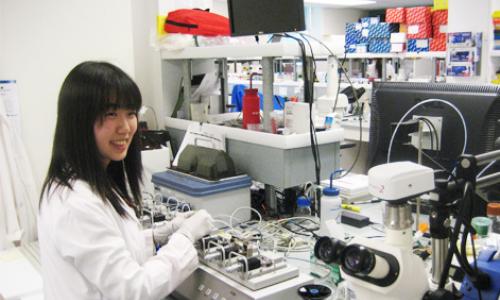
With a little creativity and some careful planning, you can stack and simultaneously complete your international activities to accomplish one long international adventure. For example, you can combine an international academic exchange with an international Co-op work term.
There are many reasons why you might like to complete multiple international adventures during a trip abroad:
-
You can get your lifestyle bearings in your chosen host location.
-
You can search for local internships while in your respective host country. This gives you time to find out the best companies and locations within the country for your chosen field.
-
You may be able to do some networking with local students and university staff to find out about opportunities for you to intern.
-
You will be able to add both international study and work to your resume.
-
You will be able to extend your time abroad!
Completing an international Co-op immediately after an international exchange allows you to spend more time in your host country, but in a new capacity. You've now discovered the local hotspots, and as an intern, you will be able to continue to enjoy them without having to worry about studying or writing papers. Most likely, you will also be able to easily set up accommodation for the duration of your internship, having now spent time in your host country and have the opportunity to visit places in person.
International Co-op placements may help you to realign your schedule to match back up with SFU's trimester system.Depending on your exchange host country and university, the semester system and schedule may be different than SFU. You could find yourself returning to Canada with a couple of months before the next SFU semester begins - why not use that time to complete an extended internship and come back to SFU at the next convenient and available semester? This is a productive way to make use of that time, and gain Co-op credits in the process.
Another perk of studying and working abroad is that you get to add international work experience to your resume along with your intercultural skills, gained from your academic exchange. This can prove to be invaluable on a resume in the existing global marketplace.
I've suggested that you complete an international exchange first, followed by an international Co-op work term.However, the possibilities are nearly endless - complete a field school and hop over to a neighbouring country to complete a work term; complete an international exchange in one country and work in another; or, begin your international adventure on a Co-op work term and then begin studying abroad at a local university (this will require especially careful planning).
Of course, visa requirements and restrictions vary by country, and this is something you will need to look into to find out whether or not you can work in a particular country. Oftentimes, visas for studying and working are completely separate, though if you plan ahead, you may be able to get a combination visa all at once.
SFU International Co-op is here for you to help you work with international companies to set up self-directed Co-op placements. We're just an email away and would love to help you set up a self-directed work term anywhere in the world. If you would like to begin receiving emails about upcoming International Co-op opportunities, send an email to goicoop@sfu.ca and ask to be added to the list serve.
For information on how to join Co-op, visit the Co-op website. For information on academic exchanges and field schools, check out SFU International.
















